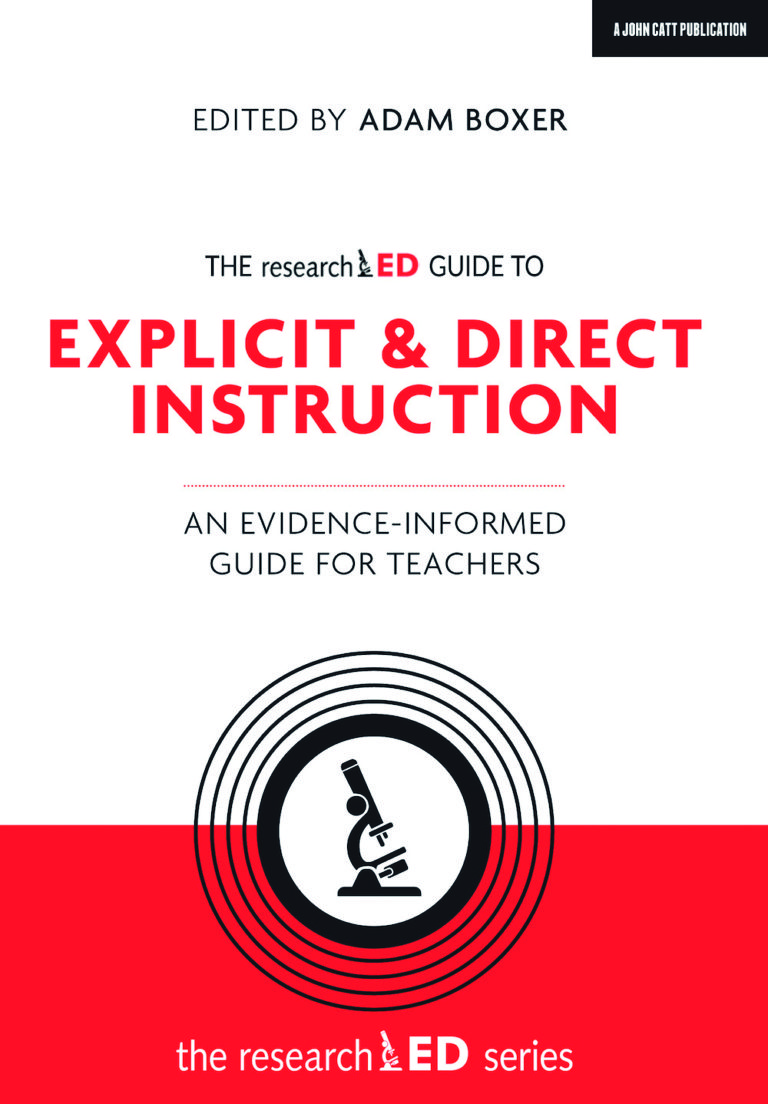-
ABOUT THE AUTHOR
Andrew Watson
Andrew began his classroom life as a high-school English teacher in 1988, and has been working in or near schools ever since. In 2008, Andrew began exploring the practical application of psychology and neuroscience in his classroom. In 2011, he earned his M. Ed. from the “Mind, Brain, Education” program at Harvard University. As President of “Translate the Brain,” Andrew now works with teachers, students, administrators, and parents to make learning easier and teaching more effective. He has presented at schools and workshops across the country; he also serves as an adviser to several organizations, including “The People’s Science.” Andrew is the author of "Learning Begins: The Science of Working Memory and Attention for the Classroom Teacher."
Tags
ADHD adolescence attention autism book review boundary conditions classroom advice conference speakers constructivism/direct instruction creativity desirable difficulty development dual coding elementary school embodied cognition emotion evolution exercise experts and novices gender high school homework intelligence long-term memory math methodology middle school mind-wandering mindfulness Mindset motivation neuromyths neuroscience online learning parents psychology reading retrieval practice self-control skepticism sleep STEM stress technology working memoryRecent Comments
- Goals, Failure, and Emotions: a Conceptual Framework |Education & Teacher Conferences on “Learning from Mistakes” vs. “Learning from Explanations”
- From Destruction to Rebuilding: Hope in Science’s Down Cycle on When Analogies Go Wrong: The Benefits of Stress?
- Dual Coding: Boosting Learning Through Words and Images – White Dragon of East County on Visual & Verbal: Welcome to “Dual Coding”
- "All People Learn the Same Way": Exploring a Debate |Education & Teacher Conferences on The Goldilocks Map by Andrew Watson
- URL on Difference Maker: Enacting Systems Theory in Biology Teaching, by Christian...
ABOUT THE BLOG
Does Higher Engagement Promote Learning?
Long-time readers know: I thoroughly enjoy research that challenges my beliefs. After all, I (probably)…

The Downsides of Desirable Difficulties
For several years now, we’ve been talking about the benefits of “desirable difficulties.” For instance,…

Too Good to be True: When Research and Values Collide
Let’s start with some quick opinions: Flipped classrooms… … can transform education and foster students’…

New Research: Unrestricted Movement Promotes (Some Kinds of) Creativity
Teachers like creativity. We want our students to learn what has come before, certainly. And,…

The First Three Steps
Early in January, The Times (of London) quoted author Kate Silverton (on Twitter: @KateSilverton) saying:…

A “Noisy” Problem: What If Research Contradicts Students’ Beliefs?
The invaluable Peps Mccrea recently wrote about a vexing problem in education: the “noisy relationship…

Teaching with Images: Worth the Effort?
According to Richard Mayer’s “multimedia principle,” People learn better from words and pictures than from…

Let’s Get Practical: How Fast Should Videos Be?
Research often operates at a highly abstract level. Psychologists and neuroscientists study cognitive “tasks” that…

The Benefits of Direct Instruction: Balancing Theory with Practice
When teachers hear that “research shows we should do X,” we have at least two…

The Best Kind of Practice for Students Depends on the...
In some ways, teaching ought to be straightforward. Teachers introduce new material (by some method…

